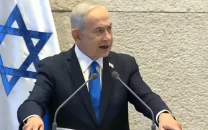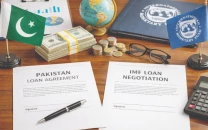How the Lokpal can prevent rape
The AAP has shown that an election can be fought and won on white money.

The writer is a journalist in Delhi whose work has appeared in The Christian Science Monitor and The New York Times. He tweets @DilliDurAst
Since that day, the number of rape FIRs in Delhi’s police stations has skyrocketed. Delhi police officials have anonymously said in the media that they have asked police stations not to turn away rape complainants, implicitly admitting that they used to do so. Anyone who has had the misfortune to be at an Indian police station for a petty crime, such as a road accident in which both parties are blaming each other, knows that Indian police stations should be renamed ‘compromise stations’. The police do not want to waste the time of citizens by making them run around the courts; they suggest you do a ‘compromise’. Depending on your perceived economic status and the gravity of offence, you can shell out a desired amount of paper with Gandhi’s image on it and voila! Case over.
Since the anti-corruption movement of 2011, corruption in India has been debated as a moral issue. We are all corrupt, the argument goes, so those crusading against corruption are the worst hypocrites. Those speaking against corruption are seen with the kind of contempt that should ideally be reserved for the corrupt.
But corruption is not a moral issue. It is an issue of governance, administration and efficiency. Defenders of corruption argue that corruption oils the machinery that would otherwise not move thanks to cumbersome laws and rules, ‘red-tapism’ and the general apathy of politicians and bureaucrats. But what corruption actually does is that it creates a parallel system of administration, which makes it a disincentive to reform the formal system, to even try and make it work. This parallel system — with its commissions set and fixed, collected through touts and distributed across the chain of command — is good only for those who can shell out money. It is like a hidden tax. And if you can shell out a lot of money, the government is your servant.
India has the world’s largest number of road accidents but when someone dies in a road accident because the roads are bad, we don’t think of it as a corruption issue. We think of rash and negligent driving, perhaps blame the traffic, the hospital authorities, or God — but not corruption. We have so deeply internalised the idea of corruption as a positive force we all participate in that we can’t even see what corruption in government does to governance.
The 2011 anti-corruption movement became a political party and it has succeeded so quickly that the Bharatiya Janata Party (BJP) and the Congress are both scared of the Aam Aadmi Party (AAP). Debating the Jan Lokpal Bill in parliament — which proposes the creation of an independent body to probe corruption cases — the BJP leader Arun Jaitley said that it was important to pass the Lokpal Bill because the credibility of the political system was now at stake. It is the arrogance of the BJP and the Congress that they think they are the political system. They are only a part of it. Now that we have a Lokpal, let’s see if the Bharat sarkar is willing to reform itself.
The AAP’s success in the Delhi elections has stalled the creation of any government in Delhi state and prevented the BJP from coming to power. The AAP has shown that an election can be fought and won on white money. The beneficiaries of corruption — the business class and the defenders of crony capitalism — are frightened at the prospect of the AAP capturing power at the central level one day. The day might not be far!
Published in The Express Tribune, December 20th, 2013.
Like Opinion & Editorial on Facebook, follow @ETOpEd on Twitter to receive all updates on all our daily pieces.















COMMENTS
Comments are moderated and generally will be posted if they are on-topic and not abusive.
For more information, please see our Comments FAQ